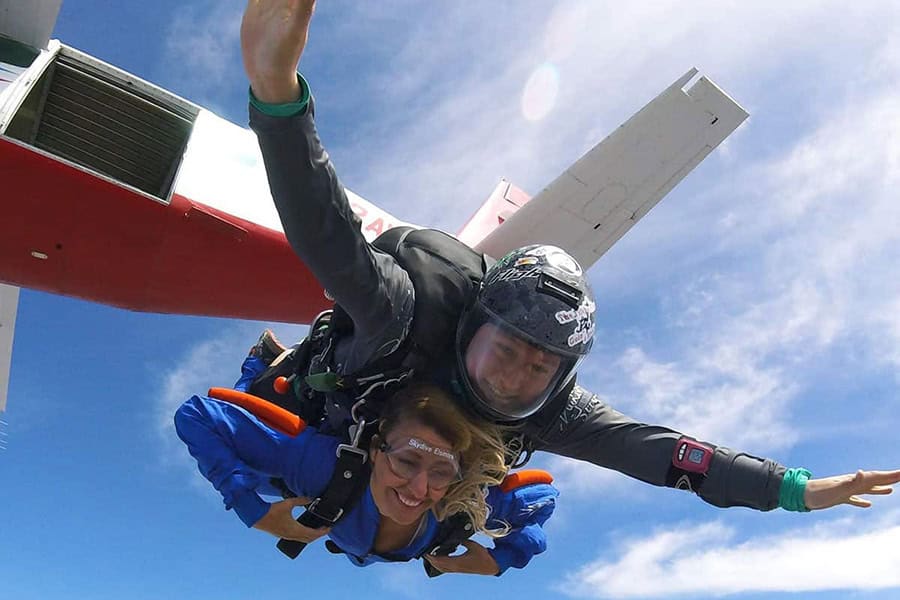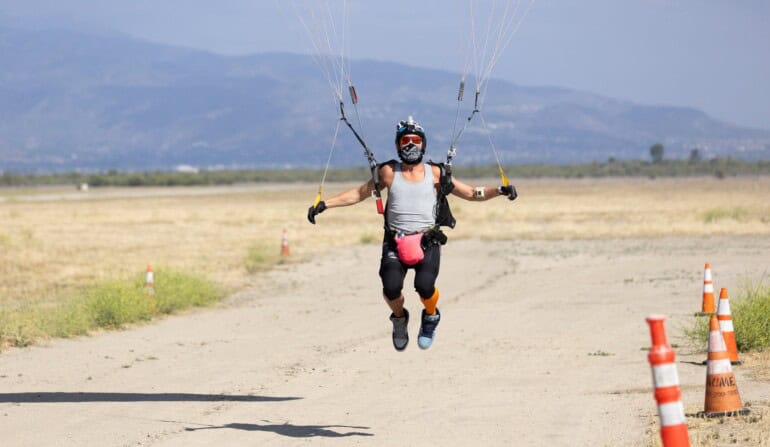Skydiving is often described as a life-changing experience. For those who have never jumped out of a plane, it’s natural to wonder: what does skydiving actually feel like? The answer is complex, as it’s a whirlwind of emotions, sensations, and adrenaline all packed into just a few minutes. Here, we’ll break down the skydiving experience from start to finish to help you imagine what it’s like.
1. The Anticipation Before the Jump
As you board the plane, the first sensation is often nervous excitement. Your heart races as the aircraft climbs to altitude. Looking out the window, you’ll see the ground slowly shrinking, and the view becomes breathtakingly vast. At this point, many first-time jumpers feel a mix of excitement and fear. Thoughts like “What am I doing?” or “This is crazy!” are completely normal.
The anticipation builds as you approach the jump altitude, typically around 10,000 to 15,000 feet. When the door opens, the sound of the wind rushing past is deafening, and the realization that you’re about to leap into thin air hits you. It’s both terrifying and exhilarating.
2. The Moment of the Jump
Stepping out of the plane is an indescribable moment. For the first second or two, there’s a surreal sensation of falling. However, it doesn’t feel like the stomach-dropping plunge of a rollercoaster. Instead, the wind quickly stabilizes you, and it feels more like you’re floating on air than plummeting toward the earth.
Many describe this moment as pure freedom. The rush of adrenaline is overwhelming, and your senses become hyper-aware. The sound of the wind is loud, the air is crisp, and the view is unlike anything you’ve ever seen. Some say it’s the closest feeling to flying that a human can experience.
3. Freefall—The Ultimate Adrenaline Rush
During freefall, which typically lasts 30-60 seconds, you’re moving at speeds of up to 120 mph. Despite the high velocity, the sensation isn’t one of falling but rather being cushioned by the air. You feel weightless, like you’re suspended in space.
This is the part of the jump where emotions peak. Some people scream, some laugh, and others are completely silent as they take in the moment. The sheer joy and thrill of freefall are often described as euphoric. Time seems to slow down, even though you’re moving faster than ever before.
4. The Parachute Deploys
When the parachute deploys, the feeling changes drastically. The sudden deceleration might jerk you slightly, but then everything becomes calm. The noise of the wind fades, and you’re left gliding peacefully through the sky.
At this stage, many skydivers feel a sense of tranquility. You can take in the panoramic view of the earth below, and it’s stunning. The peace and quiet provide a stark contrast to the intense adrenaline rush of freefall.
Your instructor (if it’s a tandem jump) may even let you steer the parachute, giving you a chance to control your descent. It’s a magical moment to float through the air, feeling like a bird soaring over the landscape.
5. The Landing
As you approach the ground, you’ll prepare for landing. With tandem jumps, the instructor typically handles this part, ensuring a smooth touchdown. The landing itself is gentle and controlled, often feeling like sliding into home base in slow motion.
Once your feet are back on solid ground, a wave of emotions hits. Many first-time jumpers describe feeling invincible, proud, and utterly alive. The adrenaline high can last for hours, leaving you with a permanent smile and an unforgettable memory.
Final Thoughts: Is Skydiving Scary or Exciting?
For most people, skydiving is both—it’s a perfect blend of fear and exhilaration. The initial nerves are quickly replaced by awe, freedom, and an unmatched sense of accomplishment. Whether you’re seeking an adrenaline rush, a unique perspective, or a chance to conquer your fears, skydiving delivers an experience that’s hard to put into words.
If you’ve ever thought about skydiving, take the leap. It’s a journey through emotions and sensations that will leave you feeling more alive than ever. After all, the best things in life often lie just beyond your comfort zone.




